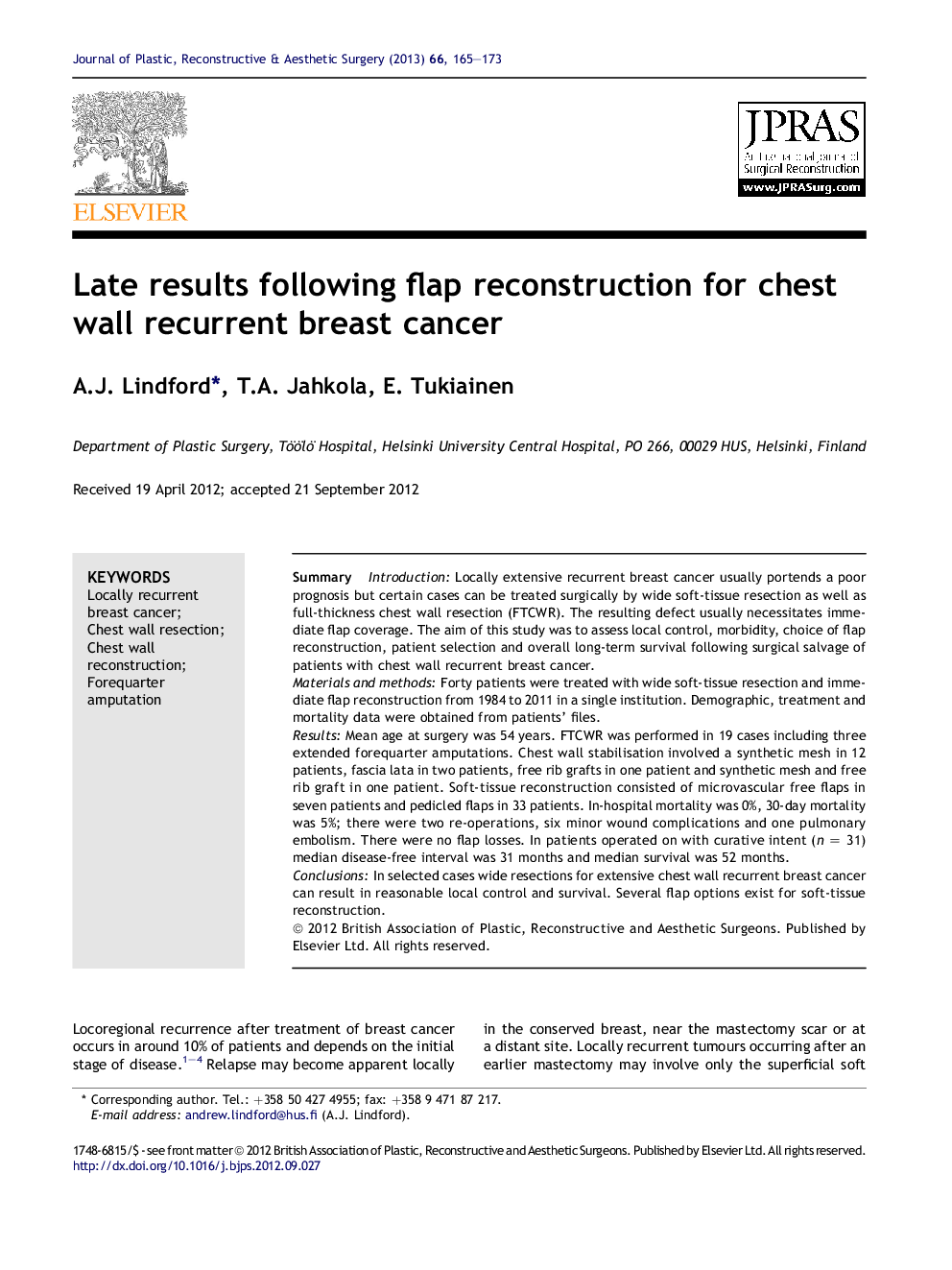| Article ID | Journal | Published Year | Pages | File Type |
|---|---|---|---|---|
| 4118754 | Journal of Plastic, Reconstructive & Aesthetic Surgery | 2013 | 9 Pages |
SummaryIntroductionLocally extensive recurrent breast cancer usually portends a poor prognosis but certain cases can be treated surgically by wide soft-tissue resection as well as full-thickness chest wall resection (FTCWR). The resulting defect usually necessitates immediate flap coverage. The aim of this study was to assess local control, morbidity, choice of flap reconstruction, patient selection and overall long-term survival following surgical salvage of patients with chest wall recurrent breast cancer.Materials and methodsForty patients were treated with wide soft-tissue resection and immediate flap reconstruction from 1984 to 2011 in a single institution. Demographic, treatment and mortality data were obtained from patients' files.ResultsMean age at surgery was 54 years. FTCWR was performed in 19 cases including three extended forequarter amputations. Chest wall stabilisation involved a synthetic mesh in 12 patients, fascia lata in two patients, free rib grafts in one patient and synthetic mesh and free rib graft in one patient. Soft-tissue reconstruction consisted of microvascular free flaps in seven patients and pedicled flaps in 33 patients. In-hospital mortality was 0%, 30-day mortality was 5%; there were two re-operations, six minor wound complications and one pulmonary embolism. There were no flap losses. In patients operated on with curative intent (n = 31) median disease-free interval was 31 months and median survival was 52 months.ConclusionsIn selected cases wide resections for extensive chest wall recurrent breast cancer can result in reasonable local control and survival. Several flap options exist for soft-tissue reconstruction.
